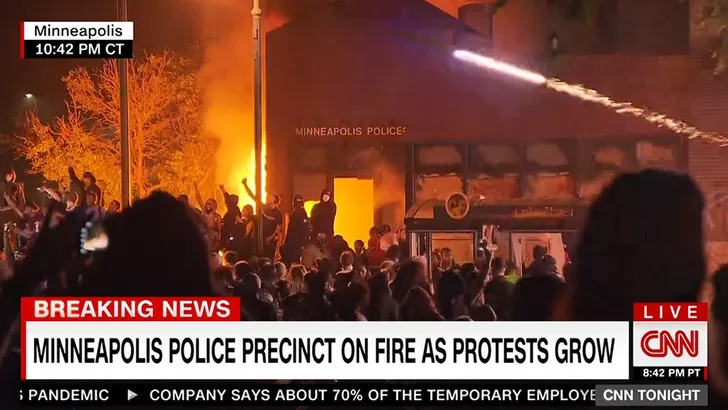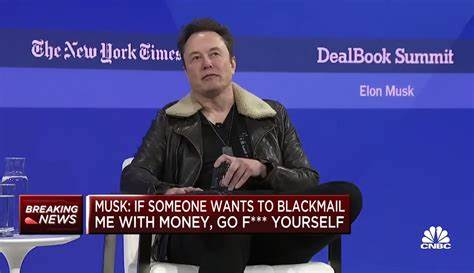The Four Pillars of Modern Civilization
This week, I wrote a piece for the Rude Awakening titled “Back to the Caves, Peasants!”
In it, I quoted Michael Shellenberger, author of Apocalypse Never. He recently gave an interview with Tucker Carlson in which he derided those who would attack the four pillars of civilization.
“We know that the pillars of civilization are cheap energy, meritocracy, law and order, and free speech, and all four of those pillars are currently under attack,” said Shellenberger.
The subconscious mind immediately recognizes and accepts truth. As long as private property is included in the category of law and order, I’m on board. All freedom springs from private property, which is why the other team quotes (and misinterprets) Proudhon all day long. After all, if property can be stolen, it must exist in and of itself first in the possession of an owner and, therefore, cannot equal theft.
It’s also why many Americans will never forgive Jefferson for changing the Declaration of Independence’s words from “life, liberty, and property” to the more cheerful but far more vague “life, liberty, and the pursuit of happiness.”
In 1689, John Locke argued in Two Treatises of Government that political society existed to protect “property,” which Locke defined as a person’s “life, liberty, and estate.” Jefferson would have done posterity a world of good had he been a bit less lavish with his words.
Civilization has always been built upon certain foundational elements enabling growth, sustainability, and prosperity.
These components fuel our world’s physical and economic engines and shape our societies’ moral and intellectual framework.
In this Morning Reckoning, let’s dive into civilization’s pillars without knocking them over.
Cheap Energy: The Dynamo of Progress
The first pillar, cheap energy, is the lifeblood of modern civilization. In its absence, the machinery of economic progress grinds to a halt. From fossil fuels to renewable sources, cheap energy powers our homes, industries, and transportation. It’s the driving force behind economic growth and technological advancement. Access to affordable energy is so pivotal that it directly correlates with a nation’s quality of life and economic development.
Unfortunately, we’re witnessing what happens to a country when it shuns cheap energy for political points.

Credit: Capital Economics
Germany stupidly went along with US sanctions against Russia and is paying for it dearly. They were never going to work, for myriad reasons I stated in the Rude and for three, in particular, my erstwhile colleague Jim Rickards wrote about in Strategic Intelligence:
- The target country must have a small- or medium-sized economy with little robustness or resiliency to sanctions.
- The target country must have limited access to alternative payment channels and few allies in any effort to obtain hard currency.
- The target country must have limited hard currency reserves or gold with which to evade or wait out sanctions.
How bad is the German economy currently? Let’s read what Capital Economics has to write about it:
German economy still very weak
- The rise in the Ifo Business Climate Index (BCI) in November mirrors the increase in the Composite PMI released yesterday but leaves the index deep in contractionary territory. It does not change our view that GDP will contract again in Q4 and will remain in near-recession conditions in the first half of 2024 too.
- Separate data released this morning by the Federal Statistics Office confirmed that GDP contracted by 0.1% q/q in Q3 after flatlining over the first half of the year.
- The outlook remains poor for the German economy. We expect GDP to contract again in Q4 and growth to remain sluggish at best thereafter. Higher interest rates and a softening labour market should weigh on investment and household consumption in the coming months, and the constitutional ruling on the debt brake could lead to an additional, sharper-than-intended fiscal consolidation next year.
Sanctions support will go down in German history as the most asinine government decision of the early 21st century. (The hysterical decision to close down its nuclear power stations after the Fukushima disaster in Japan is a close second.)
With cheap energy, Germany is a powerhouse. Without it, it’s a damp squib.
Historically, civilizations that harnessed energy effectively, whether through windmills, water wheels, or coal-fired steam engines, often led to innovation and wealth.
Pursuing more efficient and sustainable energy sources continues to shape global politics and economics.
Meritocracy: The Ethos of Fairness and Excellence
Meritocracy, the second pillar, is the principle that positions talent, effort, and achievement as the basis for progress and recognition in society. It’s a cornerstone for fairness and is instrumental in nurturing talent and hard work. In a meritocratic system, individuals are given opportunities based on their abilities and merits rather than their social status or background.
This system encourages a culture of excellence and innovation, as people are motivated to develop their skills and contribute effectively to society. Meritocracy is significant because it fosters a sense of justice and equality, which is essential for social cohesion and stability. It also drives economic efficiency and productivity, as the most capable individuals are positioned in roles where they can make the most significant impact.
The most glaring example of the lack of meritocracy must surely be in US college admissions. There are so many colleges to choose from, and almost no one is going to the right school for themselves.
Why? Because the process is no longer meritocratic.
Have a look at this:

Credit: @TheRabbitHole84
Helping is good. Pandering is not. The US no longer has the world’s best universities, just the most expensive ones.
Law and Order: The Framework for Stability and Justice
Law and order form the third pillar, providing the legal and moral framework essential for the functioning of society. This pillar encompasses the laws that govern behavior, the institutions that enforce these laws, and the judicial systems that interpret them. The rule of law is fundamental in safeguarding rights, ensuring justice, and maintaining social order. It creates an environment where individuals can exercise their freedoms while respecting the rights of others.
In societies where law and order are strong, citizens feel safer, businesses operate more efficiently, and governments function more effectively. This pillar is critical in upholding democracy, protecting property rights, and ensuring that society operates in a predictable and orderly manner. Without it, there is a risk of chaos, injustice, and the breakdown of civil society.
There are so many examples to choose from. But I’ll save myself a thousand words by merely posting a picture of Minneapolis during the riots, where precisely zero people were arrested.

Credit: TMZ
Free Speech: The Vehicle of Expression and Innovation
The final pillar, free speech, is a fundamental human right. It allows for the exchange of ideas, debate, and dissent. Free speech is crucial for the development of a society as it fosters an environment where creativity and innovation can flourish. It enables questioning the status quo, essential for scientific advancement, social progress, and the fight against injustice.
Moreover, free speech is integral to the functioning of a democratic society. It ensures that governments remain accountable to their citizens and empowers individuals to participate in politics. Societies that uphold free speech tend to be more resilient, adaptive, and progressive.
Conversely, the suppression of free speech can lead to stagnation, oppression, and social unrest.
Luckily, there’s some hope:

Wrap Up
These four pillars — cheap energy, meritocracy, law and order, and free speech — are fundamental to the flourishing of modern civilization.
Cheap energy powers our economies and innovation; meritocracy ensures fairness and rewards hard work and talent; law and order provide the necessary framework for societal stability and justice; and free speech fosters an environment of creativity, accountability, and progress.
Together, these pillars support a society that is not only economically robust and efficient but also just, fair, and conducive to the well-being and development of its citizens.
As we navigate the complexities of the 21st century, fighting those who’d knock down these pillars is essential to building a resilient, dynamic, and prosperous civilization.


Comments: